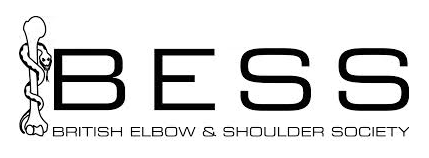Frozen Shoulder – Adhesive Capsulitis
Have you got a frozen shoulder (adhesive capsulitis?)
Frozen Shoulder Treatment in London
Have you been experiencing sudden, sharp shocks of shoulder pain that bring tears to your eyes?
Perhaps you’ve noticed that your shoulder is becoming very stiff, and you’re struggling to get dressed, and that your pain is waking you up at night?
Is this the worst pain you’ve ever experienced in your life?
You may have a frozen shoulder, and I can help you stop the pain quickly.
The best way to understand your options is to book an appointment with an experienced shoulder surgeon in London.
I’m happy to answer your questions, no matter how small.
What is a frozen shoulder (adhesive capsulitis?)
Frozen shoulder can be an exquisitely painful condition. Simply put, it’s an inflammatory process that thickens the capsule, which is the connective tissue that surrounds the shoulder joint. Frozen shoulder is common and affects one in twenty people at some point in their lifetime.
What causes frozen shoulder?
The exact cause of a frozen shoulder is unknown, but it’s more like to occur:
Many of the patients I meet who have a frozen shoulder, are going through hormonal shifts which may contribute to their condition. They might be experiencing a drop in oestrogen levels as they approach and continue into menopause. Sometimes stressful life changes (such as divorce, bereavement, or negotiating the ups and downs of a teenager in the family) can produce an increase in the stress hormone, cortisol.
Frozen shoulder is just one of many shoulder problems that can cause pain and stiffness. Rotator cuff injury or other shoulder conditions like arthritis or bursitis may contribute to restricted movement and discomfort. If you’re struggling with persistent shoulder pain, it’s important to seek a professional assessment to determine the best course of treatment.
What’s actually happening when a shoulder becomes frozen?
There are cells embedded within the capsule of the shoulder.
These cells become activated and produce a series of proteins including cytokines and growth factors that cause inflammation and fibrosis (scarring) of the capsule.
There are three stages of a frozen shoulder.
The stages of frozen shoulder:
The first stage is the “freezing” stage – this is a painful stage that occurs as the shoulder begins to become very stiff due to inflammation and thickening of the joint capsule. Characteristically, night-times are particularly painful, and this stiffness significantly limits the range of motion in the shoulder.
The second stage is the “frozen” stage. The shoulder remains stiff, but thankfully, the pain begins to ease during this stage.
The third and final stage is the “thawing” stage, and during this time the ability for you to be able to move the shoulder improves, and often returns to normal.
The amount of time spent in any of these phases varies from person to person. In my experience it can take even up to five years to improve,, which is too long to put up with that amount of pain and disability.
You might also have read that it’s not uncommon for it to affect both shoulders. But all is not lost, and there are some really simple things that can be done to improve the situation.
What the symptoms of a frozen shoulder?
You might be wondering if you actually do have a frozen shoulder and how we can differentiate it from other conditions that may give you similar shoulder symptoms?
Most people will first notice that they start to have pain and stiffness, and this is often much worse at night-time. Many people put up with pain for a long time and will only consult a doctor or a physio once their shoulder starts to become less mobile.
When the shoulder starts to become stiffer, one of the tell-tale signs that it might be frozen shoulder is that the internal and external rotation of the shoulder becomes restricted. That means, you might find it very difficult to put on your bra with your hands behind your back, or to swing your arm outward in a forearm tennis shot.
How to Diagnose Frozen Shoulder
Frozen shoulder is a clinical diagnosis, which means that we come to a diagnostic conclusion based on the symptoms you describe and the physical examination – particularly the restricted range of rotation movement.
Sometimes, I recommend that we carry out some imaging of the shoulder (e.g. an MRI or ultrasound scan) to rule out any other causes for your pain, or contributing issues within the shoulder.
What’s the treatment for frozen shoulder?
The good news is, there’s lots that can help when you have a frozen shoulder.
In the early or “freezing” stage of frozen shoulder, pain is often the biggest issue, and if your movement is only a little limited, you might not yet know that you have a frozen shoulder.
In this early stage, painkillers (in the form of anti-inflammatory medications such as ibuprofen) can help. It’s important to keep moving the shoulder (i.e. don’t shy away from using it), but it’s not helpful to push on through with activities that aggravate it, e.g. playing tennis.
Patients have told me that physiotherapy has often made their symptoms worse. This is understandable, given the degree of inflammation. I recommend delaying physical therapy until after the injection, so that the pain is more manageable.
How to Cure Frozen Shoulder Quickly
I recommend a“hydro-dilation” to reduce pain quickly and improve the range of movement in your shoulder. It’s also called a “hydro-distension” or a “high volume” shoulder injection.
This injection is carried out with ultrasound guidance and contains local anaesthetic, anti-inflammatory corticosteroid, and saline. It gently stretches the lining of the shoulder, helping to free up any restrictions. The local anaesthetic provides pain relief and means the process is very comfortable, and the steroid injection helps to combat inflammation and pain.
Frozen shoulder surgery (arthroscopic capsular release)
Ms Susan Alexander is a senior orthopaedic surgeon and is recognised by all the UK’s major insurers.






